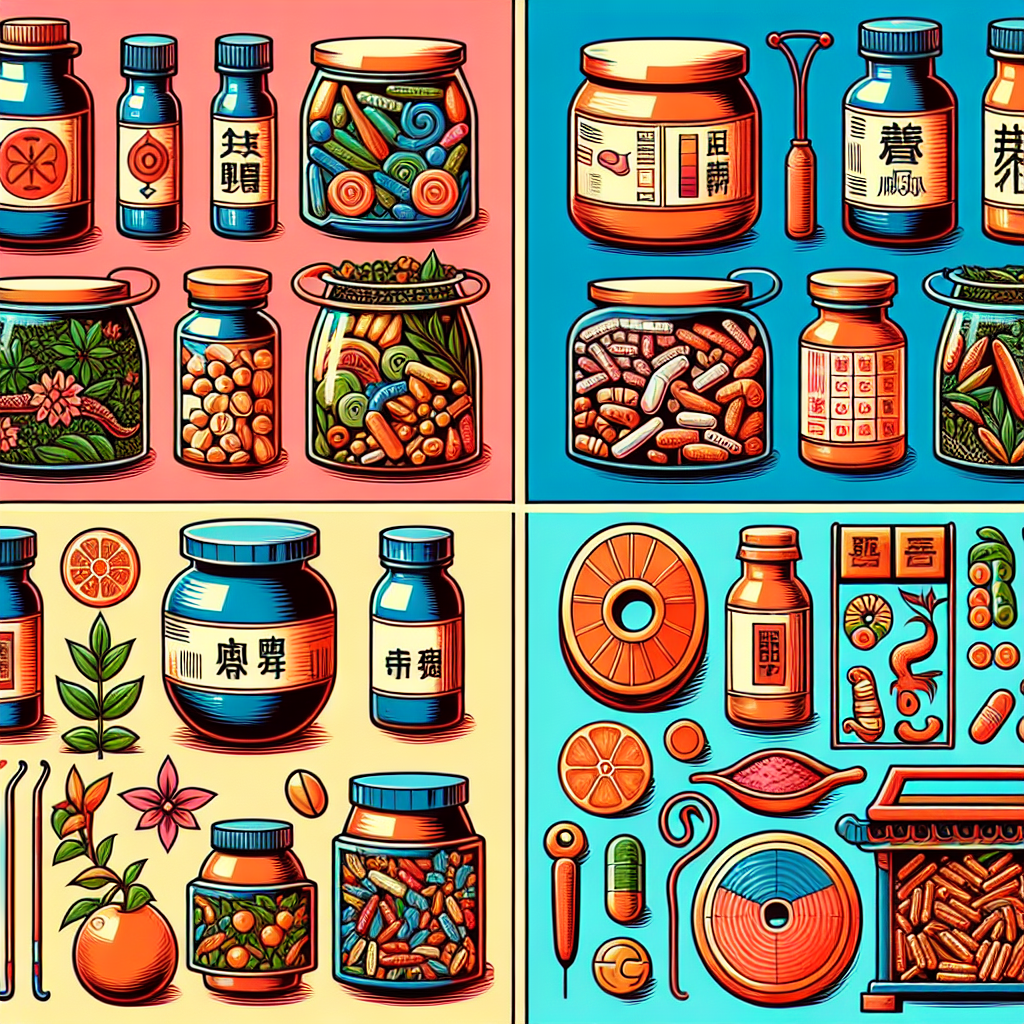Vitamins in Ayurvedic and Traditional Chinese Medicine

Discover the power of vitamins in Ayurvedic and Traditional Chinese Medicine. Unleash your body’s potential with natural healing. Visit My Vibrant Vitality today.
Exploring the Role of Vitamins in Ayurvedic Medicine
Vitamins, the essential nutrients required for the proper functioning of our body, have been a significant part of Ayurvedic and Traditional Chinese Medicine for centuries. These ancient medicinal systems have always emphasized the importance of a balanced diet, rich in vitamins, for maintaining good health and preventing diseases.
Ayurveda, a 5000-year-old holistic healing system from India, is based on the belief that health and wellness depend on a delicate balance between the mind, body, and spirit. It advocates for the consumption of a variety of foods to ensure the intake of all necessary vitamins. Ayurveda classifies foods into three categories, or ‘gunas’: sattva (purity), rajas (activity), and tamas (inertia). Sattvic foods, which are fresh, organic, and naturally rich in vitamins, are considered the most beneficial for health.
In Ayurvedic medicine, vitamins are not isolated nutrients but are seen as integral components of the food we eat. For instance, Ayurveda recognizes the importance of Vitamin C in boosting immunity and recommends foods like amla (Indian gooseberry), which is exceptionally high in this vitamin. Similarly, Ayurveda acknowledges the role of Vitamin D in bone health and suggests sun exposure and vitamin D-rich foods like milk and ghee (clarified butter).
Transitioning to Traditional Chinese Medicine (TCM), it is another ancient system that emphasizes the importance of dietary therapy. TCM believes in the concept of ‘Qi’ (pronounced ‘chee’), the vital energy that circulates in our body, and ‘Yin’ and ‘Yang’, the two opposing yet complementary forces. According to TCM, vitamins play a crucial role in maintaining the balance of Qi, Yin, and Yang.
Like Ayurveda, TCM also does not isolate vitamins but sees them as part of a complex nutritional matrix within food. For example, TCM recognizes the role of B vitamins in energy production and recommends foods like whole grains and legumes, which are rich in these vitamins. Similarly, TCM acknowledges the importance of Vitamin A for vision and suggests foods like carrots and spinach.
Interestingly, both Ayurveda and TCM have a similar approach to vitamins. They both believe in obtaining vitamins from a balanced diet rather than supplements. They emphasize the importance of consuming whole foods, which provide a complex matrix of nutrients, rather than isolated vitamins. This approach is now being validated by modern science, which suggests that nutrients from food are better absorbed and utilized by the body than those from supplements.
In conclusion, vitamins play a crucial role in both Ayurvedic and Traditional Chinese Medicine. These ancient systems emphasize the importance of a balanced diet, rich in vitamins, for maintaining good health and preventing diseases. They advocate for the consumption of whole foods, which provide a complex matrix of nutrients, rather than isolated vitamins. This approach aligns with modern nutritional science, which also emphasizes the importance of obtaining vitamins from food rather than supplements. Therefore, the wisdom of these ancient medicinal systems continues to be relevant in our modern world.
Understanding the Importance of Vitamins in Traditional Chinese Medicine

Vitamins are essential nutrients that our bodies need in small amounts to function properly. They play a crucial role in maintaining our overall health and wellbeing. While modern medicine has made significant strides in understanding the importance of vitamins, traditional systems of medicine like Ayurveda and Traditional Chinese Medicine (TCM) have long recognized their significance.
Traditional Chinese Medicine, a holistic system of health and healing that has been in practice for over 2,000 years, places a strong emphasis on the importance of vitamins. TCM practitioners believe that a balanced diet is the cornerstone of good health and that vitamins are an integral part of this balance. They view vitamins not just as individual nutrients, but as part of a complex network of elements that work together to maintain the body’s harmony and balance.
In TCM, vitamins are considered to be vital substances that nourish the body and support its functions. They are believed to contribute to the body’s Qi, or vital energy, and to help maintain the balance between Yin and Yang, the two opposing forces that govern the body’s functions. Vitamins are also thought to support the body’s organs and systems, and to help prevent and treat disease.
For instance, Vitamin C, known in TCM as “sour flavor,” is believed to support the immune system and to have a cooling effect on the body. It is often recommended in TCM for conditions such as colds and flu. Similarly, Vitamin D, or “bitter flavor,” is thought to support bone health and to have a warming effect on the body. It is often used in TCM to treat conditions such as osteoporosis and arthritis.
In addition to their role in supporting the body’s functions, vitamins are also believed to have a direct impact on the mind and emotions in TCM. For example, Vitamin B, or “sweet flavor,” is thought to nourish the heart and calm the mind. It is often recommended in TCM for conditions such as anxiety and insomnia.
Ayurveda, the traditional system of medicine from India, also recognizes the importance of vitamins. Like TCM, Ayurveda views vitamins as vital substances that nourish the body and support its functions. However, Ayurveda also emphasizes the importance of the source of vitamins. It teaches that vitamins obtained from natural, whole foods are more beneficial than those obtained from supplements, as they are more easily absorbed and utilized by the body.
In Ayurveda, vitamins are also believed to have specific effects on the body’s doshas, or constitutional types. For example, Vitamin A, or “pungent flavor,” is thought to balance the Vata dosha, which governs movement and change in the body. It is often recommended in Ayurveda for conditions such as dry skin and poor vision.
In conclusion, both Traditional Chinese Medicine and Ayurveda recognize the importance of vitamins in maintaining health and preventing disease. They view vitamins as vital substances that nourish the body, support its functions, and help maintain its balance. While modern medicine continues to explore the role of vitamins in health and disease, these ancient systems of medicine provide a holistic perspective that emphasizes the importance of a balanced diet and the role of vitamins in supporting the body’s overall wellbeing.
Comparative Study of Vitamins in Ayurvedic and Traditional Chinese Medicine
Vitamins are essential nutrients that our bodies need in small amounts to function properly. They play a crucial role in maintaining our overall health and wellbeing. Interestingly, the concept of vitamins is not new and has been a part of traditional medicinal systems like Ayurveda and Traditional Chinese Medicine (TCM) for centuries.
Ayurveda, a 5000-year-old holistic healing system from India, emphasizes the importance of a balanced diet for maintaining good health. It does not explicitly mention vitamins, but the concept is implicitly present in its dietary recommendations. For instance, Ayurveda recommends consuming a variety of fruits, vegetables, grains, and spices, which are rich sources of various vitamins. It also suggests specific foods for different body types or ‘doshas’ to ensure a balanced intake of essential nutrients, including vitamins.
On the other hand, Traditional Chinese Medicine, a system with over 2000 years of history, also does not directly refer to vitamins. However, it emphasizes the importance of a balanced diet and the consumption of specific foods to maintain the balance of ‘Qi’ (energy) in the body. Many of these recommended foods are rich in vitamins. For example, TCM suggests consuming goji berries for eye health, which are high in vitamin A, and recommends ginger to boost immunity, which is a good source of vitamin C.
Despite the differences in their approach, both Ayurveda and TCM recognize the importance of vitamins for maintaining good health. They both recommend a balanced diet rich in a variety of foods to ensure an adequate intake of all essential nutrients. However, the way they classify and recommend foods is different. Ayurveda classifies foods based on their ‘taste’ (sweet, sour, salty, bitter, pungent, and astringent), ‘energy’ (cooling or heating), and ‘post-digestive effect’. It recommends specific foods for different ‘doshas’ or body types.
In contrast, TCM classifies foods based on their ‘nature’ (cold, cool, neutral, warm, and hot) and ‘flavor’ (sweet, sour, bitter, pungent, and salty). It recommends specific foods to balance the ‘Yin’ (cooling energy) and ‘Yang’ (heating energy) in the body. Despite these differences, both systems aim to maintain a balance in the body and prevent diseases through diet.
In conclusion, while the concept of vitamins as we understand it today is not explicitly mentioned in Ayurveda and TCM, the importance of these essential nutrients is implicitly recognized in both systems. They both emphasize the importance of a balanced diet rich in a variety of foods for maintaining good health. The specific foods recommended by these systems are often rich in various vitamins, indicating their understanding of the role of these nutrients in health and wellbeing. Therefore, even though the terminology and classification of foods may differ, the underlying principles of Ayurveda and TCM regarding the importance of vitamins are remarkably similar.